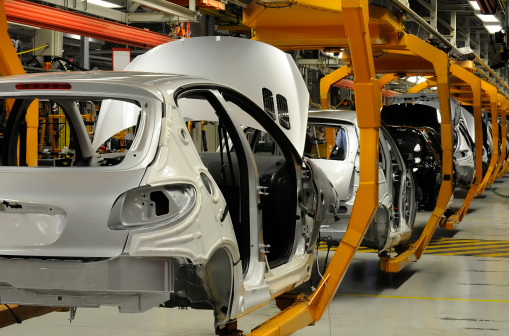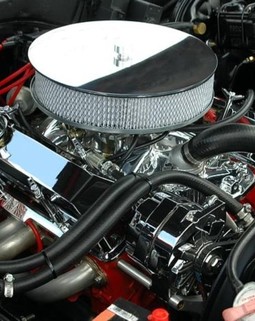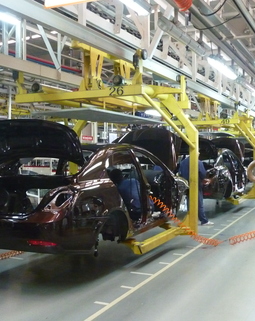The United States of America has imposed new sanctions on Russia, in the wake of the latter’s invasion of Ukraine. The sanctions cover almost every sector of the Russian economy, including the automotive sector. These sanctions could result in enormous losses to the automobile sector of the U.S, Europe, and Asia, as they mostly import essential auto-making metals from Russia.
Many important metals, that are used in the manufacturing of cars are supplied around the world by Russia. Palladium and nickel are examples of such metals. In addition to this, many foreign-owned auto manufacturing and assembly plants like Stellantis, Volkswagen, and Toyota have their bases in Russia. An auto industry expert claims that the plants based in Russia import around a quarter of their auto parts from different countries, including the U.S.A. The latest sanctions by the U.S restrict them from importing auto parts into Russia, causing difficulties for them to manage their operations. If not sorted out timely, these sanctions could result in the permanent closure of Russia-based foreign-owned auto manufacturing plants.
Sanctions may have a direct influence on every western country. Russia is the world's third-largest producer of nickel, a metal used in batteries. Similarly, around 40% of the global palladium supply comes from Russia. Catalytic converters can not be manufactured without palladium. This means if the war continues for a longer period, the auto manufacturing plants would stop their manufacturing operations since a catalytic converter is present in every diesel and gasoline vehicle. "If President Putin retaliates by cutting off the palladium supplies to the west, then the western auto industry would have no other option except for looking at the alternative supplies to run the industry," said Sam Abuelsamid, the principal auto analyst at Guidehouse insights.
Palladium is also mined in South Africa and Zimbabwe. Still, even before Russian forces moved into two parts of Ukraine, at the end of February, the price of the precious metal was skyrocketing. Palladium hit a low of $1,600 per ounce in mid-December. It had risen to a little over $2,400 on Wednesday. Increases of this magnitude might add $150 to the average cost of a new car and more than $200 to SUVs, pickup trucks, and sports cars with larger engines. When new vehicle costs are already at record highs, reaching $45,000 in January, automakers would have to decide whether to absorb the additional expense or pass it on to consumers.
Nickel plays a vital role in reducing global emissions as it is used in lithium-ion batteries which are used in electric cars. So, reducing or halting the nickel supplies means hampering the manufacturing of electric cars, which will impact the United States of America’s target of transforming 50% of its vehicle fleet into electric cars by 2030.
America's two largest automakers have been absent from the Russian market for numerous years. In 2019, Ford closed its activities, including a facility in St. Petersburg. In 2015, General Motors began to withdraw, and in 2019, it sold its remaining interest to AvtoVAZ. AvtoVAZ, which is now owned by Renault, said in a statement that it is searching for alternate sources of supply, such as semiconductors, but that it is "premature" to forecast how the crisis would affect it.
Given the current state of the auto supply chain, experts Abuelsamid and Phillippi say it's too early to tell how much of an impact the Ukraine crisis will have on the sector. Still, there are plenty of reasons for automakers to be concerned. One reason for this is that it is still unknown which of America's friends would support the new sanctions. The business is also concerned that Russia's allies would retaliate.





